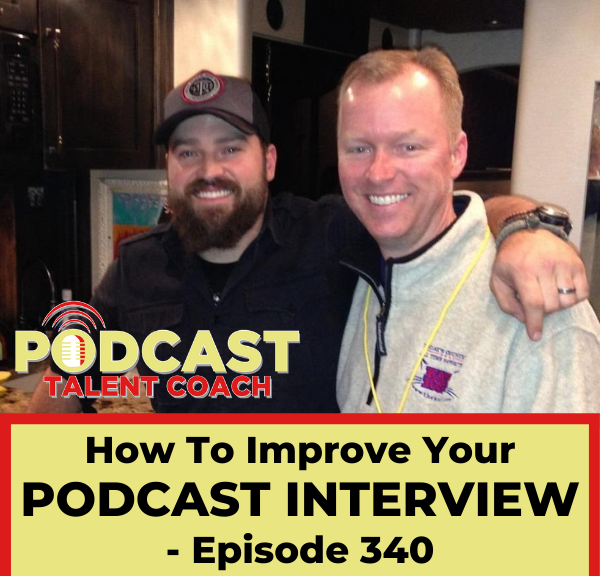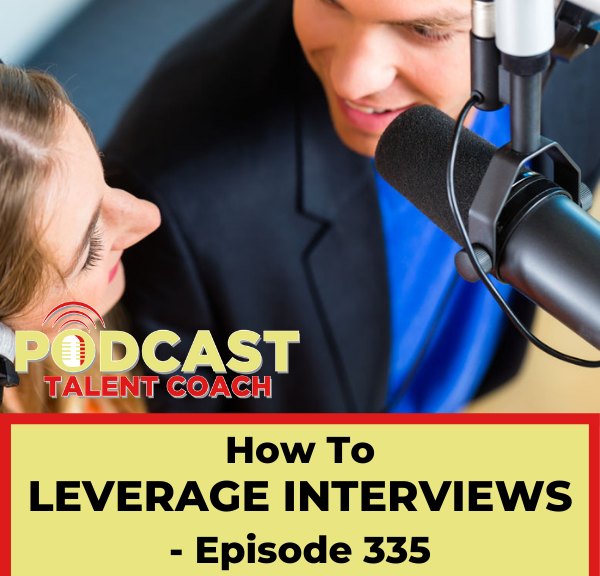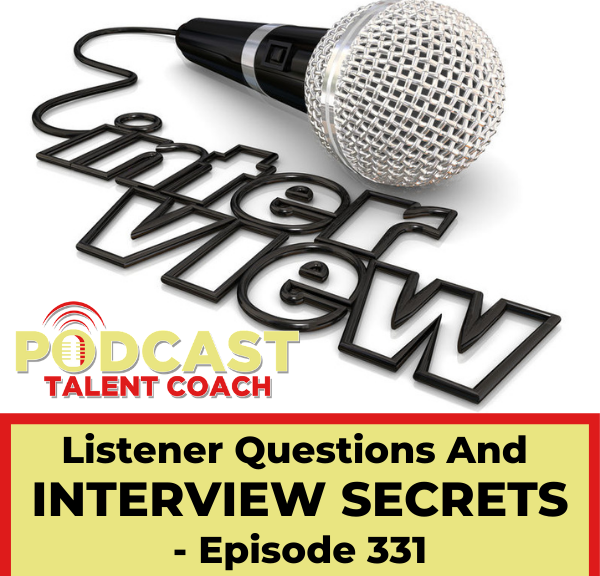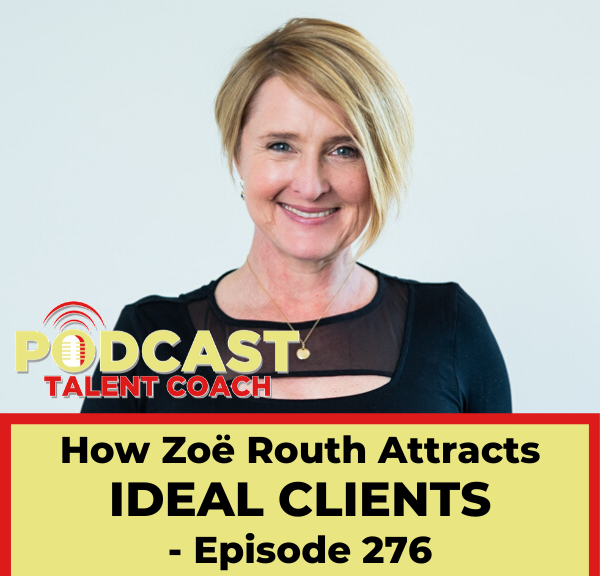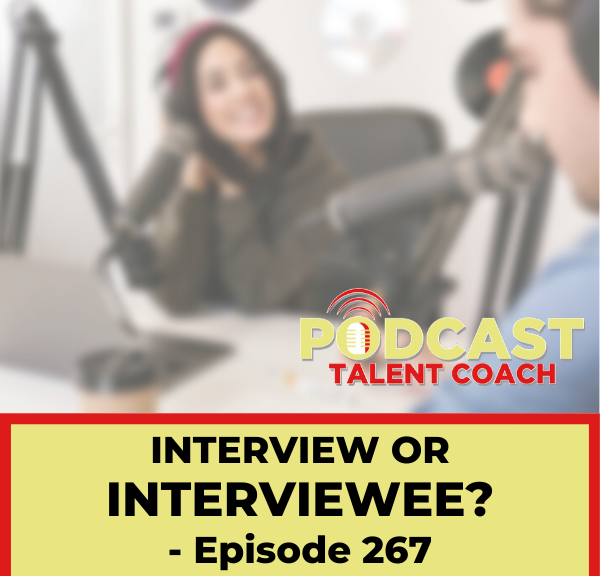Podcast: Play in new window | Download
Subscribe: RSS
On this episode, I want to teach you how to create powerful podcast interviews like the pros. There are a few adjustments you can make to create a better interview.
REASONS
There are many reasons we interview guests on our podcasts.
- They are content experts
- They know more than we do
- Guests add depth to the conversation
- Interviews can expose your show to others
- Interviews can cross-promote your products
- Guests add additional content to your show
If you are like me when I started, you probably feel a bit overwhelmed. I felt like I was a kid playing dress-up. Did I really belong with the professional interviewers? I wasn’t big time. Impostor syndrome was definitely kicking in.
You can learn how to be be more confident and create a better interview.
- We can avoid making fools of ourselves
- You can battle the impostor syndrome
- We can look smarter by surrounding ourselves with smarter people
With just a few adjustments, you can take your podcast interview to a whole new level. Here are 7 tweaks you can make this week to deliver a better interview.
BIO
1. You give their bio, not the guest.
When you open the episode, it is your responsibility to provide your audience with the background of your guest. You know what the audience needs.
Your guest is not familiar with your ideal target listener. The guest doesn’t know what your audience needs to know to put the conversation in context.
If you start the questions with “tell us a little about yourself”, you guest has no idea where to start. She might begin with growing up in a small town and working in her mom’s store. What does this have to do with your show?
Introduce your guest with the details your audience needs to understand how the conversation will benefit them. Give your audience a reason to listen. Why did you invite your guest on the show? Begin there.
STANDARD
2. Avoid the standard questions.
If you want your interviews to stand out, ask unique questions. Avoid all of the standard questions every other interviewer asks.
There are times when the guest will send you a list of potential questions. When you follow the script, you become common.
Use those questions to create some great questions of your own. Standard questions result in standard answers. If you want a better interview, ask better questions.
SET UP
3. Set up the question and then ask.
Last week I made a trek to pick up my daughter from college and bring her home for the summer. On that 3-day drive, we were able to listen to quite a few podcasts.
On one particular show, the host was interviewing a former wrestling star. The host is a big wrestling fan.
Each time the host would ask a question, he would follow it with a bunch of framing. He would ask something like, “How do you find places to hold your seminars?” It was a solid question for the interview. Unfortunately, he followed it with a bunch of examples and what he would do to find speaking opportunities.
When you follow your question with a bunch of framing, your guest forgets the question. Your listener forgets, too.
Set up the question. Tell a little of your story. Then end with the question.
LESS YOU
4. A little of you and a lot of them.
That brings us to the fourth tip. Tell your story, but only a little bit.
This is a fine line. You want to demonstrate a little of your authority. But, you want to make your guest the star.
Give a little bit of yourself. This should only be 2 or 3 sentences. Your story could be part of your framing.
Shine the spotlight on your guest. When they look good, you look good.
LISTEN
5. Listen to the answers and ask great follow-up questions.
So many podcasters are too concerned with their list of questions. They want to get through each question on their sheet.
Stop worrying about your list and listen to the answers. When you listen, you will come up with great follow-up questions. That is where the magic lies.
You really only need a few great questions. Use follow-up questions and you have a better interview.
YES/NO
6. No yes/no questions.
The sixth tip … You want to avoid yes/no questions.
Questions that can be answered with yes or no, or can be answered with one or two words, the momentum of your interview dies. The conversation comes to a screeching halt.
As open-ended questions that allow your guest to elaborate.
STORIES
7. Get your guests to tell stories.
That leads into the final tip. Get your guest to tell stories.
Everything interesting is about people. When your guest tells stories, you develop a plot. It’s a beginning, middle and end. Your interview becomes engaging.
When your guest tells stories, your listener gets emotionally involved. As humans, we have learned through stories for centuries.
Stories will transform your interviews in a powerful way. You will always have a better interview when you use stories.
Here is an episode of Podcast Talent Coach to help you with your stories: SECRETS TO AN EFFECTIVE PODCAST INTERVIEW – PTC302.
LIST
If you want to supercharge your interviews, grab my 17 Ultimate Podcast Interview Questions. Get it at www.PodcastTalentCoach.com/interview.
We interview to give more depth and voice to our content. The goal of these questions is to create inspiration and connection between the listener, the interviewee and you.
Your guests will begin telling you stories you haven’t heard them tell any other interviewer. You will hear things from your guests like “This was a really fun interview.” You will be unique and stand out from the crowd.
It is my 17 Ultimate Podcast Interview Questions. Get it at www.PodcastTalentCoach.com/interview and start building your better interview.
If you don’t have a mentor who can take your hand and walk you every step of the way, go to www.PodcastTalentCoach.com/apply, click the button and apply to have a chat with me. We will develop your plan and see how I can help and support you to achieve your podcast goals.
